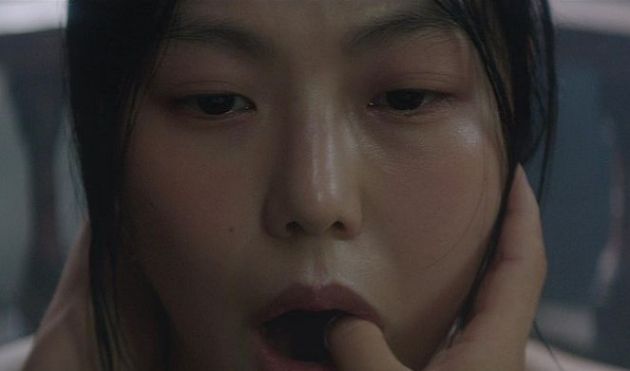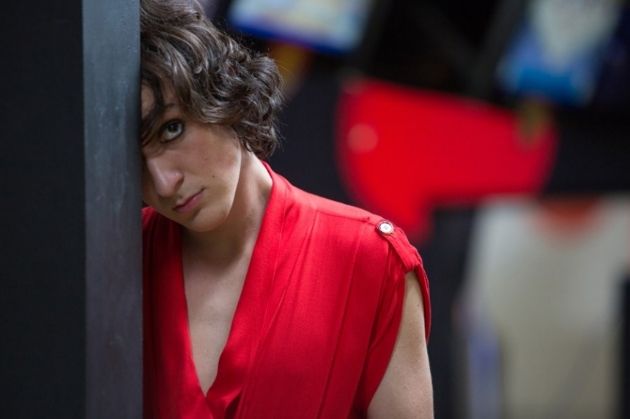
Park Chan-wook made name for himself creating one elaborate psycho-sexual set piece after another. He never shied away from over-the-top garishness or so called social taboos. But in the age of highly scrutinized sexual politics of the 21st century, he is walking a tightrope with The Handmaiden, an abashedly male gazed lesbian wet dream guised as a sweet lovestory. But we will see if it gets a pass on political correctness just because it's a subtitled foreign arthouse flick.
My takeaway is that it's a way over the top comedy bordering on (albeit lavishly done) lesbian porn-- how do I take the lovelorn/lusty expression of young Kim Tae-ri, as she protrude her tongue to lick her lover's vagina (the scene was repeated twice for viewing pleasure) from an angle that can only be described as pussy POV?
Park transports a Victorian era set novel Fingersmith, about a young but not so innocent heiress bred to recite pornographic writings in front of rich aristocrats, arranged by her perverted uncle who is set to marry her and a couple of low-life swindlers trying to trick them out of her fortune, into Korea under Japanese rule. But he consciously skips all the geopolitical implications and nationalism of that era in favor of cultural superiority which is completely hypocritical (remember incest in Old Boy?): as we advance with the story of seduction, fake marriage and triple cross into tentacle porn in the third chapter, we are already thoroughly exhausted by graphic scissoring and 69ing and an almost rape, the outrage over reciting pornographic novels doesn't really land its intended punch in the gut. Park's mechanism here is as usual, so elaborate and opulent, it's almost too rigid to embrace it fully. It's a fun movie. But its veneer is too shellacky, just like Wes Anderson's pastel colored papier maché doesn't do it for me.
